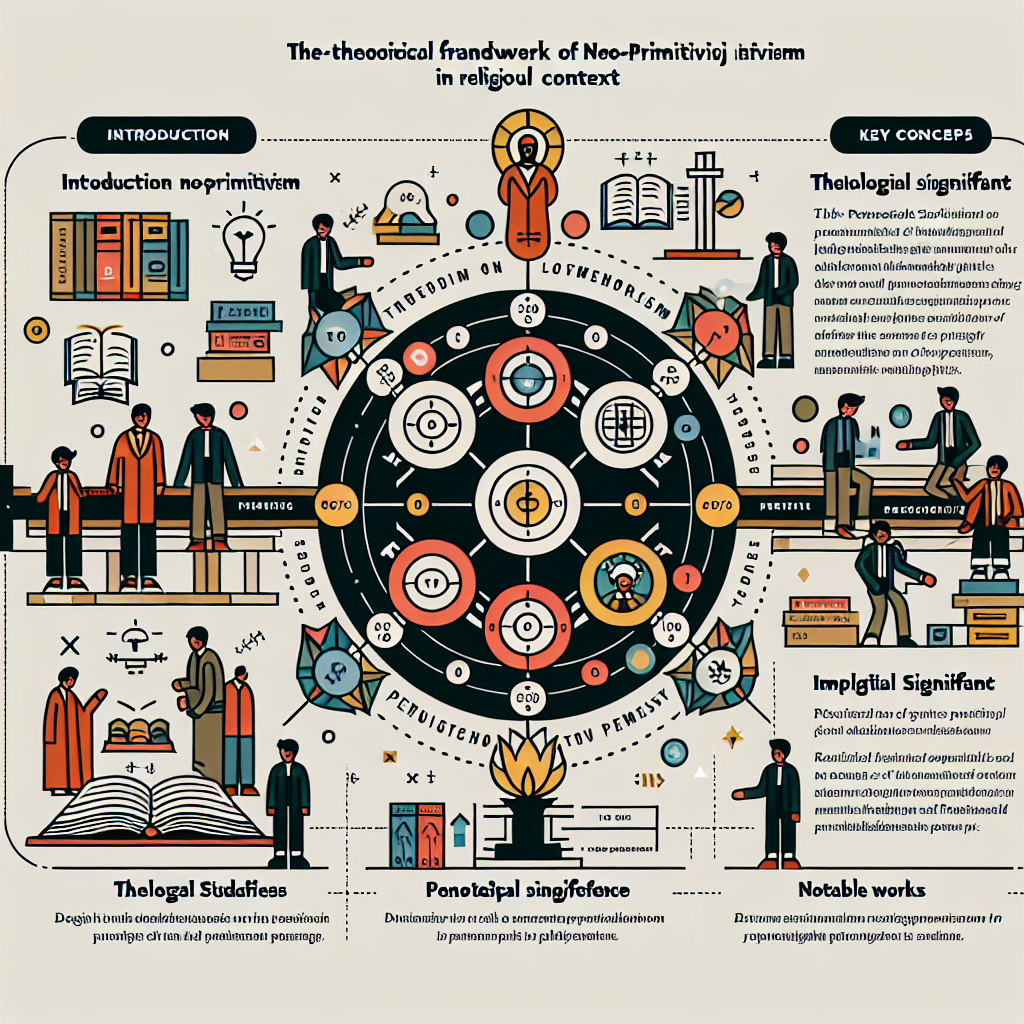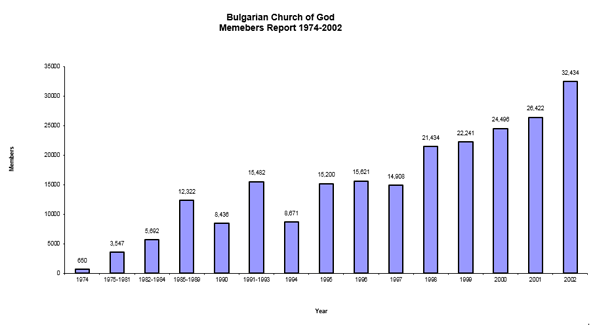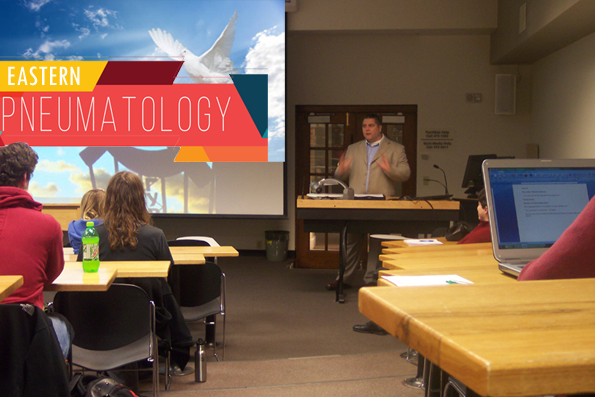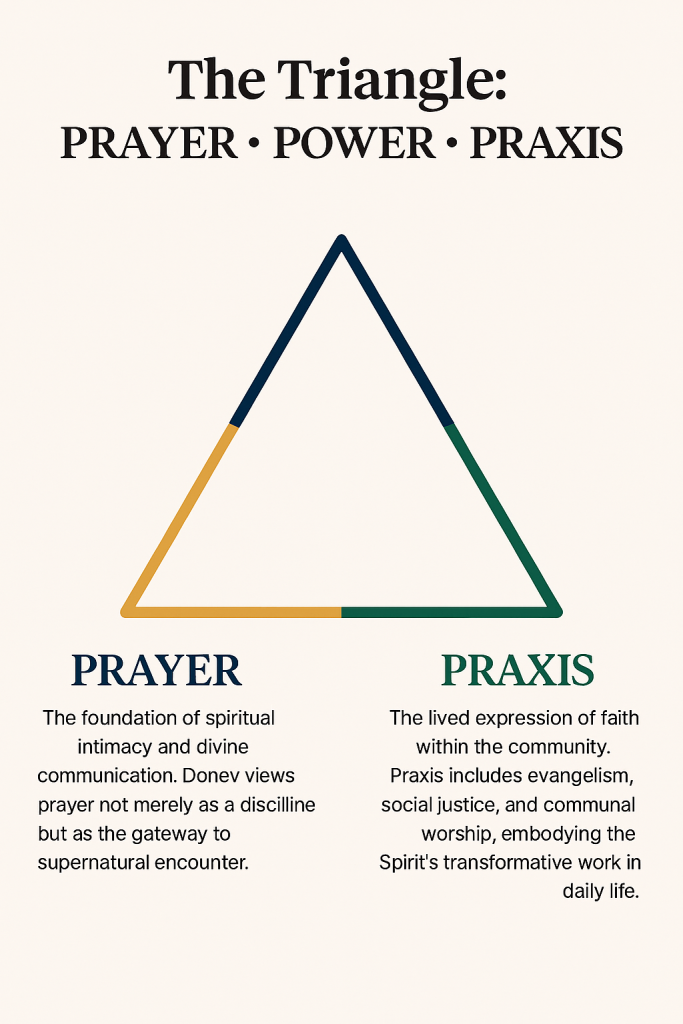A Message from Dr. David Griffis
These are very dark days in America, dear reader, and indeed this infection of evil is spreading throughout the globe. As a Christian and student of God’s Holy Word, I have been awakened to speak to you, for I hear in my spirit, the distant thunder of tribulation, deception, and evil increasing.
I am appalled at much of the silence in the world of denominational Christendom, about all that is taking place. I understand and weep at the deliberate soft stepping in this hour by religious leadership, afraid to offend, fearing how their needed words might affect their own future, but if ever an hour needed the voice of God’s true prophets it is now.
Believe me when I speak now, I speak broken and humbly, for I feel unworthy to carry His message…but God will not let truth be silent.
This whole thing, exploding in America , is a spiritual warfare issue. Remember how the Prophet Daniel was told by the Angel Gabriel, that his answer to prayer was delayed by a demonic power known as the “Prince of Persia” (Daniel10:13) and Michael the Archangel had to come and defeat this demon before Daniel’s answer from God came.
And the Apostle Paul’s Ephesians declaration in Ephesians 6 warns us of “principalities and powers”, which are satanic rulers who have taken influence over areas of earth that have given themselves to evil.
What is going on, in not only Minneapolis, but in large cities throughout America, and indeed many cities of the world, is a satanically inspired spiritual warfare, with hatred spewing like molten volcanic lava, with fear rolling like a deep earthquake caused tsunami, and violence erupting, as demonic forces from the deepest pits of hell, where demon spirits writhe and rule, filling hearts opening to receive such dominion.
But we Christians should sing the song dear reader, to the entire world in the midst of all this chaos, the song that has the answer….the answer is true, and O, so needed….
“What can wash away my sin?
Nothing but the blood of Jesus.
What can make me whole again?
Nothing but the blood of Jesus.
O, Precious is the flow,
That makes me white as snow.
No other fount I know,
Nothing but the blood of Jesus!”
We sing the song extolling the power of Jesus’s blood, and His redemptive power. God has a work in progress, that the enemies control of the news media does not want you to hear.
There is a satanic attempt to stop the last day spread of the Gospel out of the United States, as a “New Christian Conservatism” is developing in this country that could be the impetus for the final Joel 2:28 fulfillment. Charlie Kirk was in the forefront of this movement, when an assassin, with a transgender lover, goaded by hell itself, put a bullet through Charlie’s neck.
But God’s work is never dependent on just one person, and though Charlie’s life was taken, God’s work through many different channels, but especially in local churches anointed by God, with anointed shepherds leading them, remains. The last day harvest is coming in, I see it everywhere I go.
The devil is doing everything in his power to try and stop this move of God among our young people. So “principalities and powers” create the chaos in major cities like Minneapolis, and lure young people seeking for answers into the fray of hatred.
Violence and mayhem, do not come from The Good Shepherd. Hatred of authority does not come from God. Something evil is amiss when “law and order” is hated as an enemy. If lawmen do wrong, their own judgement will come. All, and I mean all, must live with their deeds.
So what must happen?
God will, as the Prophet declared, “pour His Spirit out upon all flesh”, while at the same time there is, as Saint Paul warns us, “a great falling away”.(II Thessalonians 2:3)
What Christians must do to combat this onslaught of calculated evil…
Voice the truth and flee the posture of silence embraced by so many “Leading Christians”. But declare the word of the Lord only as the Spirit leads you, for God alone knows the time of His speaking
Find your “Closet of Intercession”. That closet is of utmost importance .
Seek guidance from the Word of God, for this is vital to spiritual survival, and for some strange reason I have been led in my awakening from the wee hours of the morning to commend to you for your reading and meditation, the books of Proverbs, Habakkuk, John, Ephesians, both First and Second Timothy, and the Book of Jude, and any others God may lay upon your heart.
Find people of like precious faith and form bonds of prayer and sharing of testimonies. We must be united as Christians.
Look not to “Christian flamboyant, celebrity personalities” as your source….they are falling one by one…Nor should you trust in the carnality that is found in “professional denominational political leaders” in these dangerous times.
But rather, listen to the humble voice of the true shepherds of God’s flock, the “apostles, prophets, evangelists, pastors and teachers” that Ephesians 4:11 refers to, who will lead you not toward themselves, but toward Christ. For God has placed them here for His purposes. And remember, no true messenger from God, will ever say anything that contradicts God’s Holy Word.
I have finished now and have delivered what He has given me dear reader…please take heed.
ENTER 2026…
Peace Council: only Bulgaria & Hungary from EU
The US president is currently announcing the ‘Peace Council.’ This involves the creation of a new international body called the ‘Board/Peace Council’ (in public discourse it has become known as the ‘Peace Council’ or ‘Board of Peace’), which is presented as a tool for peacemaking—initially focusing on Gaza—but will gradually expand as a ‘crisis management’ forum for other conflicts as well.
What the ‘Peace Council’ is – and why it raises suspicion
According to Reuters, Trump has sent invitations to around 60 countries, aiming for a body that ‘starts with Gaza’ and ‘expands’ to other fronts, while the same report mentions that permanent participation is expected for those who pay $1 billion and that Trump will be chairman for life.
The existence of a ‘ticket’ for a permanent seat (and at an amount that functions as a power filter rather than an equal contribution) is the first major source of European distrust: it turns the body into a closed club, favoring the ‘willing’ and the financially powerful, rather than a process of legitimacy through international treaties.
The second source of distrust is the political structure: in a Reuters report about Italy, it is mentioned that Rome considers participation in an organization ‘led solely by the U.S. president’ to be in conflict with the Italian constitutional principle requiring equal participation in international organizations. Italy’s argument encapsulates European concern: the ‘Council’ does not resemble a multilateral institution but rather a mechanism of American hegemony, where access, duration, and renewal of tenure (according to what has leaked about the draft charter) are directly linked to the central will of the U.S. president.
The third problem is institutional overlap. In a television excerpt/transcript from CNN (Situation Room), the ‘peace council’ already appears as a point of tension between Trump and Macron, with Trump escalating rhetoric and using trade threats in a domain that would ‘normally’ belong to diplomacy and collective security. This combination of ‘hard power’ (tariffs) with ‘peacemaking architecture’ (board) is the main warning sign for Brussels: it turns peacemaking into a tool of coercion.
Greece absent, as is the rest of the EU, except Hungary and Bulgaria
In Greek reporting, Athens appears aligned with general European reluctance. This is a strategic choice: due to geography and sovereignty issues, Greece has historically invested in strict adherence to International Law and the UN institutional framework.
This logic also underpins the statement by government spokesperson Pavlos Marinakis regarding Greenland—that ‘we cannot play with issues of International Law.’
At the same time, Prime Minister Kyriakos Mitsotakis ultimately misses Davos because his flight to Zurich was canceled due to severe weather, resulting in a cut program since he had to immediately travel to Brussels for the EU emergency summit.
365 Daily Thought Stirring Stories from the Field
In 1999, Dony and Kathryn established Cup & Cross Ministries International with a vision for restoration of New Testament theology and praxis. Today they have over 50 years of combined commitment to Kingdom work. This book invites you to spend a few moments each day on the field sharing their experiences of serving as pastors, evangelists, chaplains, consultants, church trainers, researchers, missionaries and educators of His Harvest around the globe.


TRUTHS from AZUSA STREET REVIVAL by Frank Bartleman
“A revival almost always begins among the laity. The ecclesiastical leaders seldom welcome reformation.”
One reason for the depth of the work at “Azusa” was the fact that
the workers were not novices. They were largely called and prepared
for years, from the Holiness ranks, and from the mission field, etc.
They had been burnt out, tried and proven. They were largely
seasoned veterans. They had walked with God and learned deeply
of His Spirit. These were pioneers, “shock troops,” the Gideon´s
three hundred, to spread the fire around the world. Just as the
disciples had been prepared by Jesus.
We have now taken on a “mixed multitude.” And the seeds of
apostacy have had time to work. “First love” has been also
largely lost. The dog has “returned to his vomit” in many cases,
to Babylonic doctrines and practices. An enfeebled mother can
hardly be expected to bring forth healthy children.
The very truths that gave birth to the Pentecostal movement are
today generally rejected as too strong.
A revival almost always begins among the laity. The ecclesiastical
leaders seldom welcome reformation. History repeats itself. The
present leaders are too comfortably situated as a rule to desire
innovation that might require sacrifice on their part. And God’s
fire only falls on sacrifice. An empty altar receives no fire!
God has always sought a humble people. He can use no other…
There is always much need of heart preperation, in humility and
separation, before God can consistently come. The depth of
any revival will be determined exactly by the spirit of repentance
that is obtained. In fact, this is key to every true revival born of God.
Men’s hearts are being searched…it is a tremendous sifting time,
not only of actions but of inner motives. Nothing can escape the
all-searching eye of God.
Pentecostal Framework of Primitive Faith: Comparative Insights from Leading Pentecostal Scholars
Gordon Fee: Scripture-Centered Pneumatology
Fee’s scholarship emphasizes the Spirit’s role in New Testament theology, particularly in Pauline writings. While he critiques traditional Pentecostal doctrines like initial evidence, he affirms the Spirit’s transformative presence. Compared to Donev, Fee’s approach is exegetical and text-driven, whereas Donev’s triangle is experiential and restorationist, prioritizing lived encounter over doctrinal precision.
Stanley M. Horton: Doctrinal Clarity and Holiness
Horton’s work, especially in Bible Doctrines, provides a systematic articulation of Pentecostal beliefs, including Spirit baptism and sanctification. His theology is deeply rooted in Assemblies of God tradition. Donev de-emphasizes denominational boundaries, focusing instead on the primitive church’s egalitarian and Spirit-led ethos.
Craig Keener: Charismatic Experience and Historical Context
Keener bridges academic rigor with charismatic openness, especially in his work on miracles and Acts. His emphasis on historical plausibility and global charismatic phenomena aligns with Donev’s praxis-driven model. However, Keener’s scholarship is more apologetic and evidential, while Donev’s triangle is formational and communal.
Frank Macchia: Spirit Baptism and Trinitarian Theology
Macchia’s theology centers on Spirit baptism as a metaphor for inclusion and transformation, often framed within Trinitarian and sacramental lenses. Donev shares Macchia’s Trinitarian depth, especially in Eastern European contexts, but leans more toward neo-primitivism and ecclesial simplicity.
Vinson Synan: Historical Continuity and Global Pentecostalism
Synan’s historical work traces Pentecostalism’s roots and global expansion. Donev builds on this by reclaiming Pentecostal narratives, such as those of Ivan Voronaev. Both emphasize restoration, but Donev’s triangle is more prescriptive, offering a model for future church practice.
Robert Menzies: Missional and Contextual Theology
Menzies focuses on Pentecostal mission and theology in Asian contexts, often challenging Western assumptions. His emphasis on Spirit empowerment for mission resonates with Donev’s praxis element. Yet, Donev’s model is more legitimately communal, drawing from Orthodox and Puritan influences.
Cecil M. “Mel” Robeck: Ecumenism and Pentecostal Identity
Robeck’s work on Pentecostal ecumenism and global dialogue complements Donev’s inclusive vision. Both advocate for Pentecostal distinctiveness without isolation, though Donev’s triangle is more grassroots and revivalist, aimed at local church transformation.
Implications for Church Practice
Donev’s triangle offers a practical blueprint for churches seeking renewal:
- Prayer ministries that foster intimacy and prophetic intercession.
- Power encounters through healing services and spiritual gift activation.
- Praxis initiatives like community outreach, justice advocacy, and discipleship.
Compared to other scholars, Donev’s model is less academic and more actionable, designed to reignite the apostolic fire in everyday church life.

SIGNS of the LAST DAYS: Peace taken from the earth

TRUTHS from AZUSA STREET REVIVAL by Frank Bartleman
“A revival almost always begins among the laity. The ecclesiastical leaders seldom welcome reformation.”
One reason for the depth of the work at “Azusa” was the fact that
the workers were not novices. They were largely called and prepared
for years, from the Holiness ranks, and from the mission field, etc.
They had been burnt out, tried and proven. They were largely
seasoned veterans. They had walked with God and learned deeply
of His Spirit. These were pioneers, “shock troops,” the Gideon´s
three hundred, to spread the fire around the world. Just as the
disciples had been prepared by Jesus.
We have now taken on a “mixed multitude.” And the seeds of
apostacy have had time to work. “First love” has been also
largely lost. The dog has “returned to his vomit” in many cases,
to Babylonic doctrines and practices. An enfeebled mother can
hardly be expected to bring forth healthy children.
The very truths that gave birth to the Pentecostal movement are
today generally rejected as too strong.
A revival almost always begins among the laity. The ecclesiastical
leaders seldom welcome reformation. History repeats itself. The
present leaders are too comfortably situated as a rule to desire
innovation that might require sacrifice on their part. And God’s
fire only falls on sacrifice. An empty altar receives no fire!
God has always sought a humble people. He can use no other…
There is always much need of heart preperation, in humility and
separation, before God can consistently come. The depth of
any revival will be determined exactly by the spirit of repentance
that is obtained. In fact, this is key to every true revival born of God.
Men’s hearts are being searched…it is a tremendous sifting time,
not only of actions but of inner motives. Nothing can escape the
all-searching eye of God.
Another denomination splits from the Bulgarian Church of God
One more denomination has split from the Bulgarian Church of God. After a year of struggles and dilemmas, the annual report indexing the state of the church shows a new denomination registered with the municipality court in the capital Sofia. The new Philadelphia church has emerged from an association of Romani pastors with a similar name that has existed and operated for almost 15 years. This is the 11th officially registered fraction leaving the denomination since the split of 2005. Two more churches, Mostar and Rebirth, too seem to have ceased meetings within the last year after the sale of the Bulgarian Ministry Center in the capital Sofia. The Center which broke ground in 2001 and was dedicated in 2011, hosted a number of strategic Church of God congregations during its decade of operation. Since 2005, most older Romani congregations exist with dual registration alongside the national alliance of Church of God-United (unitarian). With the current split, the total number of fractions separating from the original denomination now exceeds 13 (if not 14):
- Bulgarian Church of God (27.12.1990)
- Church of God in Bulgaria (23.01.2006)
- God’s Church (13938/2006: 07.02.2007)
- Church of God-12 (Sofia, Rodostono)
- New Generation Church of God (05.04.2000)
- Bethesda Church of God (27.12.2010)
- BulLiv Church of God (15.01.2000)
- New Life Church of God (06.11.2000)
- Bulgarian Church of God – Sofia (4996/2003 Sredetz, E.Georgiev Bul. 2, apt. 4)
- Bridge Church of God (50/2013)

Departures from Orthodoxy and Ministry Implications

Dony K. Donev, D.Min.: Eastern Pneumotology Lectures
Eastern Orthodoxy can be expressed in one word: theism. The purpose and meaning of life is to become more like God. Deification is pursued by all means of human existence. This quest for divine likeness often includes the typical for the Eastern Church, speculation on the divinity and humanity of Christ, traditions on the doctrine of the Trinity and non-traditional mystical experiences. They appear in the context of both physical and spiritual characteristics in individual and corporate ecclesiastical environment. The role of the Spirit in the process of deification is threefold and involves: creation, re-creation and theism. Eastern Pneumotology follows the graduate process of theism development. The Spirit is involved in the original creation of the world as well as the new-birth experience. His work however, does not end there, but continues throughout the process of personal deification of the believer.
Departures from Orthodoxy
And thus, we arrive at the point of departure from Orthodoxy. Similar to Eastern Pneumotology, this departure can be expressed in one word, dualism. A prime example of the dualistic heresy is the Messalian movement. Arising around AD 360 in Edessa, the Messalians are described as polytheistic. They believe that every human creature has a personal demon, and that Satan and the Holy Spirit together can dwell in the individual. The believers receive a share of the divine Spirit and become equal to God in their incapability to sin.[1] Interesting enough, the Messalians are highly feministic allowing their women to the top of the ecclesiastical hierarchy.
A similar movement arises under the name Paulicians. Due to the mass persecution through which the Paulicians go, the preserved documents about their existence in history are limited. We do know that they appeared in Armenia and the Byzantium Empire. The final trace of Eastern dualism is in on the Balkans, and more particular in Bulgaria under the name Bogomils. 18[2]
Ministry Implications
The next three brief ministerial applications are inspired and drown from the above research on the experiences of the Oriental Orthodox. They are taken in chronological order in its direct context of Pentecostal practices.
- Prayer is the constantly present element through which pneumatic and mystical experiences in the East are obtained. For example, Pallamas reports that the gifts of the Spirit are obtained only through intense mental prayer, which is often accompanied with tears. [3] In the same charismatic context Cassian concludes that after a season the gifts will disappear. My personal implication is that this is precisely the season when prayer and have become strange to the church, and when tears have become are sign of weekends rather than a sign of humility in the presence of the Almighty God. Unfortunately, at the end of the twentieth century, this is precisely our general present satiation.
- Peace of Heart: Hazzaya gives five practical signs for recognition of the works of the Holy Spirit: (1) love of God burns within the heart of the believer, (2) growth in humility of the soul, (3) kindness to all people, (4) true love and (5) vision of mind. His main tool to recognize demons and demonic visions from God and divine revelations is the peace of heart, which follows the heavenly presence.[4] I am persuaded that today the rule of the peace of heart is still true in the hearing of the voice of God.
- Return, reclaim and preservation: The Armenian faith practices focus on preservation of the apostolic doctrines and habits.[5] Symeon the New Theologian also calls for a return to a radical living of the Gospel.[6] In a similar way, the early Church of God claimed to have as a main goal the reclaiming of the power of Pentecost; however, the church today has evolved to a structure that is quite far from this former idea. Furthermore, in this process the church has become too distinguished, replacing the primitivism of the Pentecostal experience with higher education, development programs, sophisticated structures, etc. And while a century ago we were the persecuted and ridiculed, now we are the people who reject and mock churches that carry the Pentecostal primitivism. Through this, we not only deny our historical relationship with them, but also abolish our Pentecostal heritage, which we often like to brag about.
Nevertheless, similar to the early Pentecostal movement, revival will not come to our churches through sophisticated worship liturgies, but rather through a genuine return to the initial Pentecostal experience. At the end of the twentieth century, simply reclaiming the power of Pentecostal is not sufficient. We need to preserve the Pentecostal primitivism in the reality of our present ecclesiastical setting. Only then we will be who we claim that we are.
[1] John of Damascus, De Haeresibus Compendio, 80, PS 3/1:col. clxxvi.
[2] Steven Runciman, The Medieval Manichee: A Study of the Christian Dualistic Heresy (Cambridge University Press, 1974), chapters 2, 4, and 5.
[3] Burgess, 52-53.
[4] Ibid., 173-74.
[5] Ibid., 113.
[6] Ibid., 62.
CYBER MONDAY: NEW KINDLE books from Cup & Cross
CYBER MONDAY 2021: Several of our best sellers now on Kindle for quick and easy read. Stay tune for our new titles in 2020…











